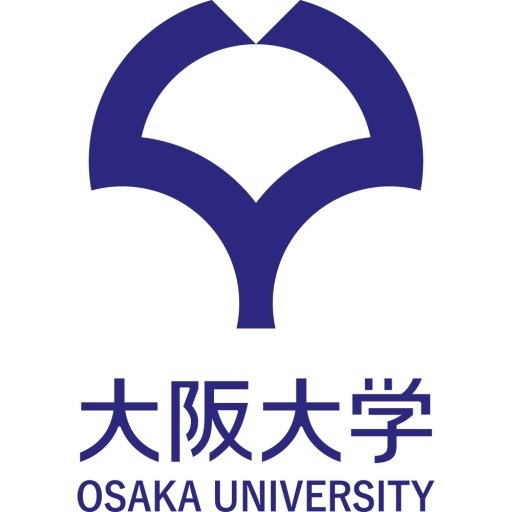The Global Environmental Leaders Program at Nagoya University is a distinguished international graduate program designed to cultivate the next generation of environmental leaders equipped with advanced knowledge and practical skills to address pressing global environmental challenges. This interdisciplinary program integrates scientific, technological, and policy perspectives, aiming to foster innovative solutions for sustainable development and environmental conservation across diverse contexts. Students enrolled in the program will have the opportunity to engage in rigorous coursework taught by renowned faculty members originating from various countries, ensuring a truly global academic environment. The curriculum encompasses core subjects such as environmental science, climate change, renewable energy, environmental policy, and ecological management, allowing students to develop a comprehensive understanding of the multifaceted nature of environmental issues. Additionally, students participate in research projects, fieldwork, and collaborative activities that emphasize real-world applications and problem-solving capabilities. The program encourages active engagement with international organizations, government agencies, and industry partners to facilitate internships, joint research initiatives, and policy exchanges. Graduates of the Global Environmental Leaders Program are expected to emerge as competent leaders capable of designing and implementing effective strategies for environmental sustainability, advocating for policy reforms, and contributing to the global dialogue on climate and environmental issues. Nagoya University’s strategic location and strong global networks provide students with unique opportunities for international exchanges and collaborations, fostering a truly global perspective on environmental challenges and solutions. This program aims to develop not only experts with technical expertise but also ethical leaders committed to creating a sustainable future for our planet, making a meaningful impact in their respective fields worldwide.
YEAR ONE
For the purpose of expanding their knowledge of their selected study area, students will enroll in lectures and seminars provided by the Graduate School of Environmental Studies (Department of Environmental Engineering and Architecture) and the Graduate School of Engineering (Department of Civil Engineering). Also students can take related lectures offered at the Graduate School of Bioagricultural Sciences, the Graduate School of International Development, etc. Special lectures and seminars are also provided through active contribution from prominent outside specialists as well as faculty staff. The lecture topics are cross-thematic and include, for example, "environmentally responsible product research and development" and "corporate environmental management systems," through which students can acquire advanced knowledge on environmental technologies and policy-making.
YEAR TWO
Students enter into training or an internship at companies, local governments, or international organizations in order to gain further knowledge and practical experience in the selected study area.
Master Thesis
The master's thesis of each student will be a research work dedicated to studying and solving the present needs of developing countries. Data collection and analysis through domestic and overseas field surveys will be an important process of making master's thesis. Program students are required to compose their master's thesis in English.
Applicants must take the admission test for either the master‘s or doctoral course of one of the following host departments.
- For admission to our masters program : The Spatial Planning and Environment Course, Department of Environmental Engineering and Architecture for the Graduate School of Environmental Studies or the Department of Civil Engineering of the Graduate School of Engineering.
- For admission to our doctoral program : The Spatial Planning and Environment Course, Department of Environmental Engineering and Architecture for the Graduate School of Environmental Studies.
- Applicants indicate their interest to enter the program by completing the written exam and interview as part of the entrance exam process. Further information will be provided to examinees.
- Entrance exam (written exam and interview)
- Program students will be selected based on the results of the entrance exam, etc.
- Qualified students will receive acceptance result and reconfirm their intention of participating in this program by the administrative office.
- Students will be officially registered into the program upon their acceptance into their master's course.
The Global Environmental Leaders Program at Nagoya University offers a range of financing options to support international students pursuing advanced studies in environmental science and related fields. Tuition fees for the program are structured to be competitive and reflect the university's commitment to accessible higher education. International students are required to pay the standard international student tuition fee, which includes expenses for registration, tuition, and examination. Additionally, students may have opportunities to secure scholarships, grants, and financial aid through various university-sponsored programs.
Nagoya University provides several scholarship opportunities specifically aimed at international students. The Nagoya University International Student Scholarship is one of the primary financial supports available, offering full or partial tuition fee waivers, as well as stipends to assist with living expenses. Eligibility criteria typically include academic excellence and financial need, and applicants are evaluated through a competitive selection process. Aside from university-level scholarships, students may also apply for external funding sources such as government scholarships, international foundations, and bilateral agreements that promote educational exchange and financial support.
The university encourages prospective students to explore external grants that can supplement their income during their studies. Many international students supplement their funding through part-time work, permitted under specific visa regulations, which can help offset living costs and enhance their cultural and professional experience. Nagoya University provides resources such as career counseling and employment support to assist students in finding part-time employment opportunities in and around the campus.
In terms of long-term financial planning, students are advised to budget for accommodation, health insurance, transportation, study materials, and miscellaneous expenses. The cost of living in Nagoya is relatively moderate compared to other Japanese cities, which allows students to manage their finances more effectively within available scholarships and personal funds. The university also offers guidance and counseling on financial planning to help students make informed decisions about funding their education.
In conclusion, financing studies at the Nagoya University Global Environmental Leaders Program involves a combination of tuition fees, scholarships, external funding options, and personal budgeting. The university strives to attract talented international students by providing various financial aid opportunities, making it feasible for students from diverse backgrounds to pursue their academic and research interests in environmental leadership.
The Global Environmental Leaders Program at Nagoya University is a specialized postgraduate initiative designed to cultivate advanced skills and knowledge in the field of environmental science and sustainable development. This program aims to educate future leaders who can address complex global environmental challenges through interdisciplinary approaches and innovative solutions. The curriculum often includes coursework in environmental policy, ecology, climate science, renewable energy, and sustainable resource management. Students engage in research projects that emphasize real-world applications, often collaborating with international organizations, governmental agencies, and industries to develop practical strategies for environmental conservation and sustainable practices. The program fosters a global perspective, encouraging students to understand environmental issues within diverse cultural and socio-economic contexts. It typically involves seminars, workshops, and fieldworks to enhance practical understanding and teamwork skills. Graduates of the program are expected to assume leadership roles in environmental policy-making, research institutions, advocacy groups, and international organizations working towards sustainable development goals. The program may also offer opportunities for studying abroad, joint degrees, or internships that provide exposure to global environmental initiatives. Nagoya University, being well-regarded in scientific research and education, offers state-of-the-art facilities and expert faculty to support the rigorous academic and practical training of its students. Overall, the Global Environmental Leaders Program at Nagoya University seeks to develop well-rounded, knowledgeable, and proactive professionals committed to protecting the planet and ensuring sustainable futures worldwide.








